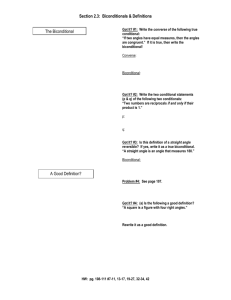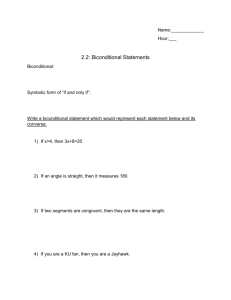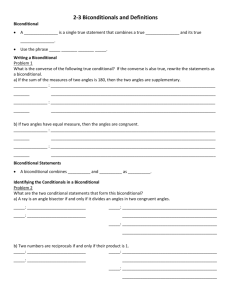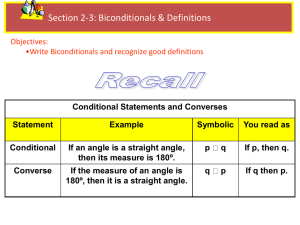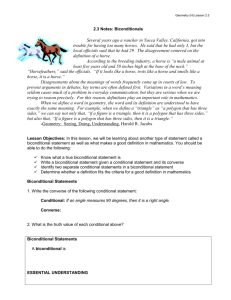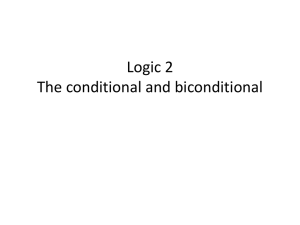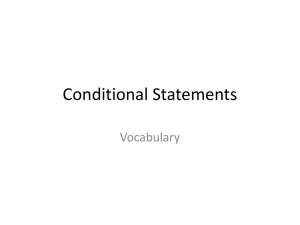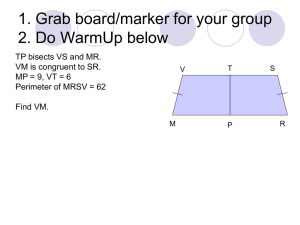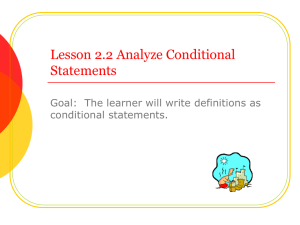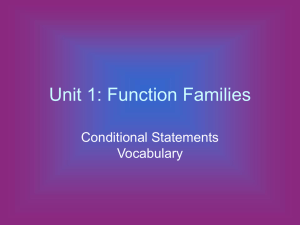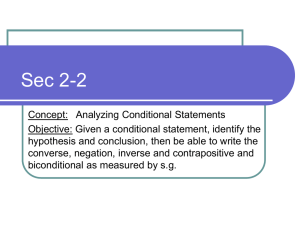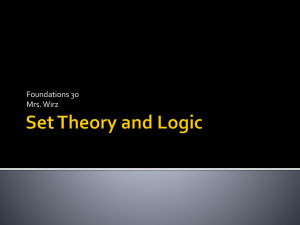2.2 Biconditionals and Definitions
advertisement
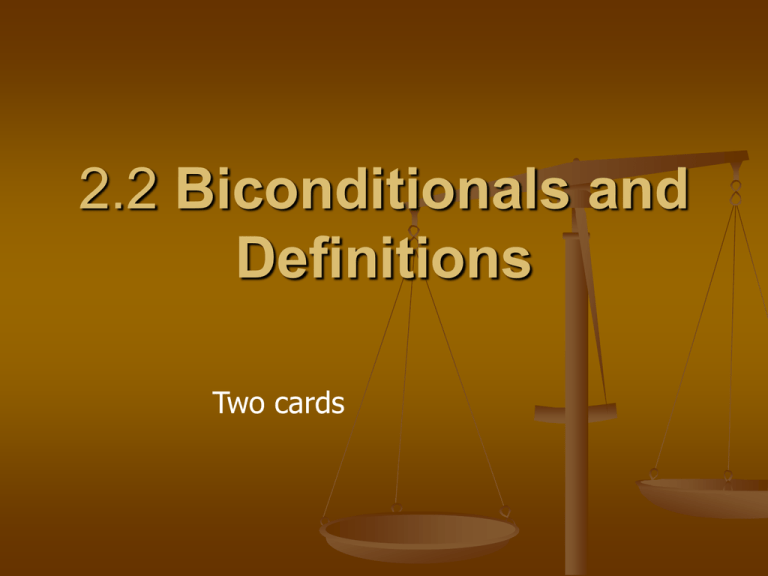
2.2 Biconditionals and Definitions Two cards Biconditionals When a conditional and its converse are true, then you can combine them as a biconditional. Use the words: “if and only if” Ex 1: Write as a Biconditional Conditional: If an angle measures 90 degrees, then it is a right angle. Converse: If an angle is a right angle, then it measures 90 degrees. Both are True. Ex 1: Write as a Biconditional Long way: If an angle measures 90 degrees, then it is a right angle AND if an angle is a right angle, then it measures 90 degrees. Short Way: An angle measures 90 degrees IF AND ONLY IF it is a right angle Ex 1: Write as a Biconditional Conditional: If three points are collinear, then they lie on the same line. Converse: True or False? If True, Write it as a Biconditional Ex 1: Write as a Biconditional Conditional: If three points are collinear, then they lie on the same line. Converse: If three points line on the same line, then they are collinear. True Three points are collinear IF AND ONLY IF they lie on the same line. Ex 1: Write as a Biconditional Conditional: If x = 5 then x + 15 = 20 Converse: True or False? If True, Write it as a Biconditional Ex 1: Write as a Biconditional Conditional: If x = 5 then x + 15 = 20 Converse: If x + 15 = 20, then x = 5 True Biconditional: X = 5 IF AND ONLY IF x + 15 = 20 Ex 2: Separate a Biconditional Biconditional: A number is divisible by 3 if and only if the sum of the digits is divisible by 3. Ex 2: Separate a Biconditional Two converse statements: If a number is divisible by 3, then the sum of the digits is divisible by 3. If the sum of the digits is divisible by 3, then a number is divisible by 3. Ex 2: Separate a Biconditional Biconditional: A number is prime if and only if it only has two distinct factors, 1 and itself. Ex 2: Separate a Biconditional Two converse statements: If a number is prime, then it only has two distinct factors, 1 and itself. If a number has two distinct factors, 1 and itself, then it is prime. Summary Biconditional: A B Good Definitions Helps to identify or classify an object Uses clearly understood terms Is precise (avoids words like large, sort of and some) Is reversible (can be written as a true biconditional statement) Definitions Is it reversible? If so, write it as a true biconditional: Definition: A right angle is an angle whose measure is 90 degrees. Definitions Yes It is reversible: Conditional: If an angle is a right angle, then it measure is 90 degrees. Converse: If an angle measures 90 degrees, then it is a right angle. Biconditional: An angle is right if and only if it measures 90 degrees. Definitions Good or Bad? Perpendicular lines are two lines that intersect to form right angles. Parallel lines are two lines that are sort of close to each other. Definitions Good or Bad? Perpendicular lines are two lines that intersect to form right angles. Good – Can write it biconditionally Parallel lines are two lines that are sort of close to each other. Bad – Lines that are close to each other might intersect eventually. Definitions Good or Bad? An airplane is a vehicle that flies. A triangle has sharp corners. A square is a figure with four right angles. Definitions Good or Bad? An airplane is a vehicle that flies. Bad- a helicopter is a vehicle that flies A triangle has sharp corners. Bad- sharp is an imprecise word A square is a figure with four right angles. Bad- A rectangle has four right angles Homework 2.2 Pg 78
